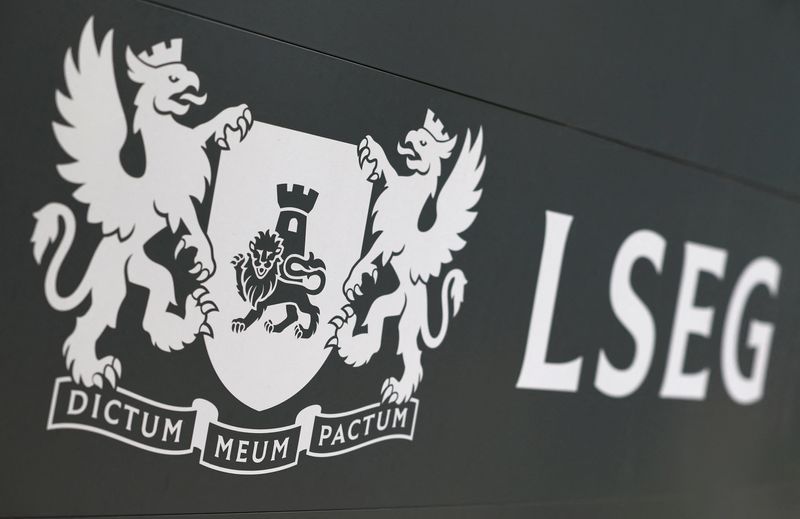LONDON (Reuters) – Share markets enjoyed a fourth straight day of gains on Thursday as the prospect of another ECB rate cut pinned shorter-term euro zone borrowing costs near to their lowest level since the end of 2022, and the euro to a 4-month nadir.
An overnight rally in supersized U.S. tech stocks and a rebound in commodity markets was also helping the mood, but focus was rapidly gravitating towards what message ECB chief Christine Lagarde sends from Frankfurt later.
The central bank’s second quarter-point rate cut of the cycle is almost certain, but how hard and fast it moves for the rest of the year still seems up in the air and this meeting will throw new ECB staff forecasts into the mix.
Chief European Economist at BNP Paribas (OTC:BNPQY) Paul Hollingsworth said new inflation projections might actually come in higher than the last set in June, although they will have been finalised before this month’s dive in oil prices.
“We think that this will translate into a message of gradualism,” he said, adding that even if Lagarde does not completely rule out a follow-up cut in October, it does not look likely for now.
Markets currently expect rates to drop to around 2% over the next 12-18 months. “But if we are right on the base case, the market is probably pricing in too many cuts.”
European shares, which have not enjoyed the same strength of rebound this week as other parts of the world, were up a solid 1% with tech stocks jumping 2.5% after Magnificent 7 powerhouse Nvidia (NASDAQ:NVDA) had surged on Wall Street on Wednesday.[.EU][.N]
The euro and sterling were hovering at just above $1.10 and $1.30 respectively, while ECB-sensitive 2-year German government bond yields bobbed at 2.18% having just dropped to their lowest level since December 2022.
Overnight, MSCI’s broadest index of Asia-Pacific shares outside Japan had rallied 1.5%. The Nikkei jumped 3.3%, helped by a weaker yen, which pulled back from its 2024 high of 140.71 per dollar.
The dollar was last up another 0.2% to 142.57 yen, having been pressured earlier by hawkish comments from a senior Bank of Japan official who called for raising rates at least to 1%.
U.S. data on Wednesday meanwhile showed core consumer price index (CPI) rose 0.28% in August, compared with forecasts for a rise of 0.2%. It was enough of a steer for markets to almost abandon the chance of a half-point rate cut from the Federal Reserve next week, with probability for such a move at just 15%.
“We wanted answers to help settle the 25bp vs 50bp Fed rate cut debate on Friday, but now it seems the market has made its own mind up,” said Chris Weston, head of research at Pepperstone, referring to the mixed August payrolls report last Friday.
“We are now comfortable with calling a 25bp cut for September, but also open-minded to the idea that a weak U.S. payrolls report on 4 October would fully open up a 50bp cut in the November FOMC meeting.”
TECH REBOOT
The disappointment over core inflation figures had pressured Wall Street but again tech stocks came to the rescue, with AI darling Nvidia jumping 8%, helped by a media report that the U.S. government is considering letting the company export advanced chips to Saudi Arabia. [.N]
Regional tech-heavy share markets in Asia followed suit, with Taiwan adding 2.8% and South Korea gaining 1.7%.
Back in the rates markets, 2-year Treasury yields edged up 1 basis point to 3.66%, having risen 4 basis points overnight, while 10-year yields were at 3.6665%.
That left the 2-10-year yield curve flattening slightly and barely remaining positive at less than 1 bp.
Oil extended gains on fears that Hurricane Francine could lead to lengthy production shutdowns in the U.S. [O/R]

Brent crude futures, which hit their lowest in almost three years earlier this week, rose over 1% to $71.40 a barrel, after gaining 2% overnight.
Industrial bellwether metal copper was having its best day since July thanks to a 2% rally while gold was 0.2% stronger at $2,517 an ounce, just a touch below its record high of $2,531.60.
To read the full article, Click Here

